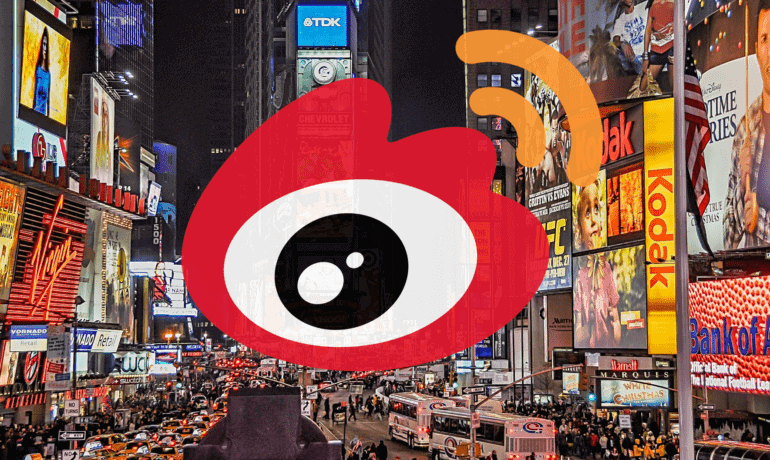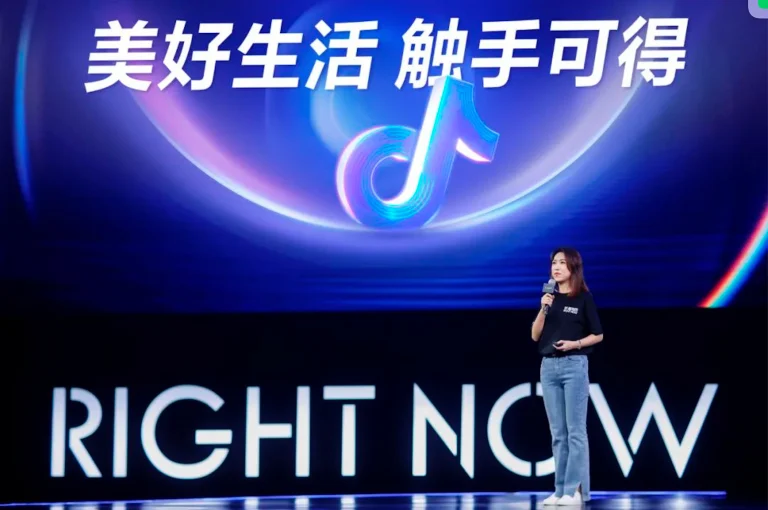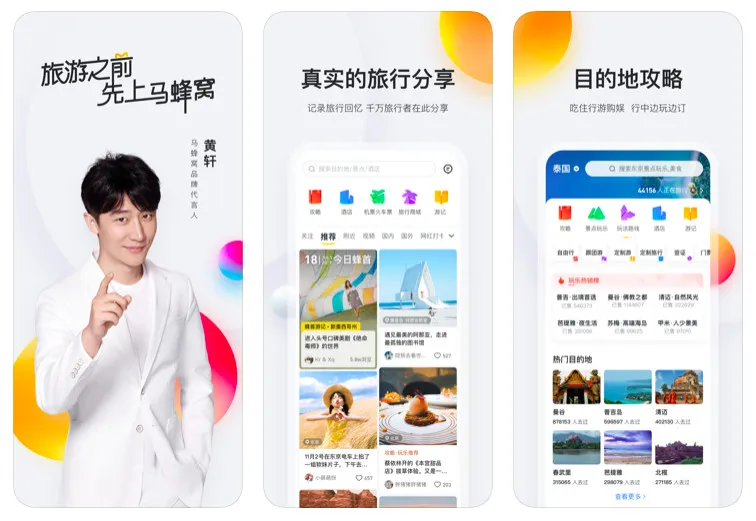Top trends on Weibo
What makes Weibo a winner in an ever-changing digital landscape?
Weibo has been used by more than 850 million Chinese people since 2021, making it the largest social media marketing platform in the world.
You will be able to stay ahead of the changing Chinese digital market with its large social reach, loyal user base ( over 500+ million) and multifaceted content.
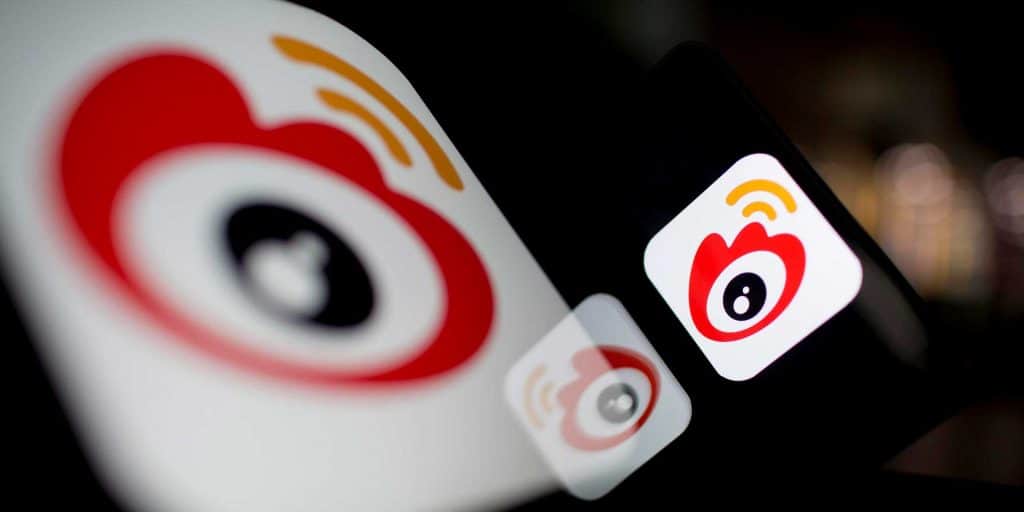
It is a valuable resource that marketers consider essential to reach their target audience in China. We take a look at what keeps Weibo at the forefront of its industry.
Weibo’s content
The platform’s users are not limited to China. Many registered users are in Europe, America and other parts of the world. They share their lives with their friends at home and abroad. The UK alone has more than 500,000 Weibo users.
It reaches Chinese audiences around the world and supports content and conversations across a wide range of industries, including beauty, real estate, housewares and education.
Brands can be creative in creating relevant, diverse and memorable content because of the variety of possible topics. Weibo, which aggregates the opinions of key opinion leaders (KOLs), can help brands increase credibility and drive sales.
Weibo’s multi-functional appeal
Weibo’s global reach isn’t the only reason it’s a crucial channel for brands. Weibo’s wide range of features is unmatched, allowing for all types of content and campaigns.
Weibo, which has a strategic partnership with Alibaba, is constantly developing its e-commerce capabilities. This makes it a major competitor in the social commerce market, competing with platforms such as Little Red Book and WeChat MiniPrograms.

Weibo hosts many celebrities and KOL accounts. It is an important channel for the Chinese fan economy. Fan groups can drive business, from selling new products in a single day to banning websites that “harm” the image of pop culture icons in the country.
Why do brands use Weibo?
Brands new to the Chinese social networking market often overlook Weibo and underestimate it. Yet, Weibo can yield outstanding results when used properly.
The platform’s content can be used to drive traffic to other more expensive or harder to reach channels. This is possible by leveraging Weibo’s viral communication style. It is quickly becoming the most popular platform for entertainment and search.
Weibo is a less expensive option than other channels. Its extensive targeting capabilities can lead to a higher return on investment than other platforms. In addition, it can reach a large user base from different age groups.
Nothing beats recommendations from Chinese consumers. Weibo’s ability to deliver brand-related content should not be underestimated. This can benefit both brands and customers. Brands should be aware that unhappy customers can quickly turn into a PR disaster.
Weibo can make or break a brand’s reputation and sentiment, which only strengthens the argument that it’s worth monitoring.
Want Weibo to be part of your strategy?
Weibo is a master of reinvention and has been a survivor of China’s digital transformation. Weibo is a pioneer of digital innovation and has kept its large user base connected with the latest news, gossip and other relevant information. It remains a key channel for successful digital strategies.
To stay relevant, it is more important than ever to adapt and constantly improve marketing. Expert advice is the best way to navigate China’s complex marketing landscape for brands that are new to Weibo, or for those looking to update their strategy.
Understanding the Chinese consumer journey and the impact of Weibo on it is key to a brand’s success. It can also help brands choose the right campaign and content options for their goals.
Marketing strategy on Weibo
Creating a Weibo marketing plan that delivers results is not easy.
What apps to use and what strategies to adopt.
WeChat can do it all. It is the most important digital communication platform in China. What is the interest of using Weibo for marketing? What makes Weibo attractive to Chinese digital marketers?
What is Weibo?
First of all, Weibo (which means microblog in Chinese) is a mixture of Twitter and Facebook. Unlike WeChat, Weibo is more open and accessible than WeChat. Because it is more open than WeChat, it offers greater opportunities for awareness and exposure. It can be an important communication channel. Weibo is used by the majority of Chinese people for entertainment and trend spotting.
Marketers have the opportunity to increase their brand awareness through the support of celebrities or KOLs (or Wanghong in Chinese). Weibo can also be used to gather information about entertainment and trends in China.
Weibo is not as popular as WeChat, but it has 170 million users per day. These users have taken to using the comment sections for social interaction. Weibo is a great platform to communicate with customers.
If you want to increase your brand’s visibility in China and engage with your customers, add Weibo to your marketing strategy. Selling becomes easier when you have a loyal audience of people who like and trust you.
Weibo marketing strategies in action
North Face used a Weibo marketing strategy that proved to be very effective. It engaged with Weibo users. One user shared a photo of a pair he wanted to buy for his wife. In the comments, North Face offered a discount code (see image below). This type of interaction encourages continued talk about the brand. Another example is The North Face, who offered a pleasant surprise to everyone who commented on their new clothing line.
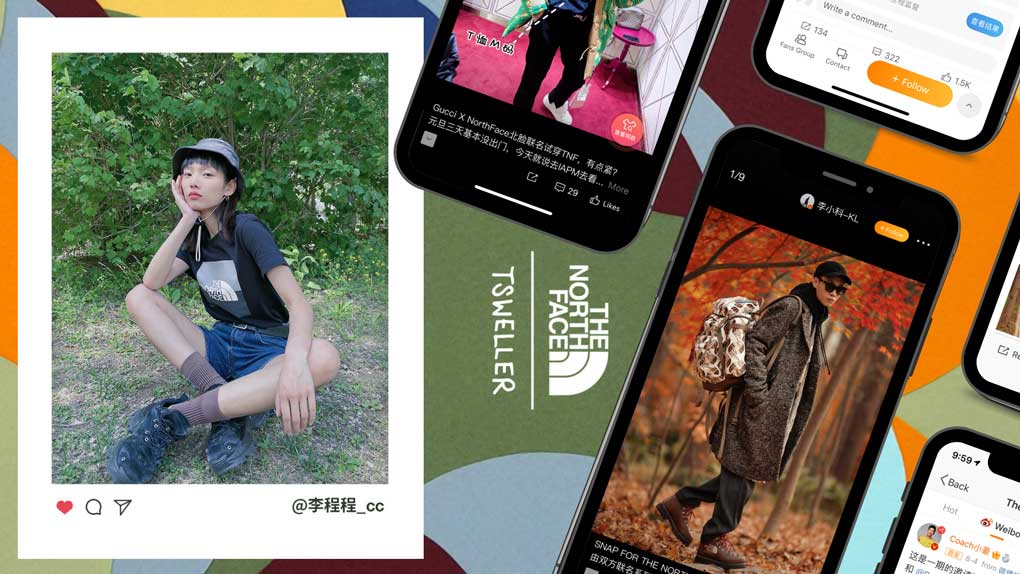
Tourism New Zealand is another company that has had success with Weibo marketing. Huang Lei, a famous actor, singer, screenwriter and university teacher, was hired. To promote New Zealand as a top destination, he was invited to New Zealand. He posted messages on Weibo about his trip to New Zealand during his stay. The story garnered a lot of attention, with more than half a million likes and over 1.6 million views. The story resulted in five hundred articles being published, which proved to be valuable publicity for Tourism New Zealand.
Here are the key points to remember when marketing using Weibo
Engage with your audience
As China gains popularity in Western countries, it’s still vital to maintain a good relationship with them. According to feedback, interacting with suppliers and other partners is crucial. This is not considered an advantage, but it is something that is expected on Weibo.
Understand your audience in depth
Buyer Personas are not essential for many markets and industries outside of China. However, in China, marketing on Weibo WeChat or Baidu will not yield any results if the target audience is not known. Effective communication is only possible if you know who you are addressing.
With local experts, create buyer personas. Specialists are able to provide more information and perspectives. This will make the difference between traction and struggle.
Use local knowledge
As we said above, local knowledge is crucial. Someone on the ground can help you understand what’s going on, how your target market thinks, makes decisions and other unique factors. You need to be able to understand the lives and circumstances of your prospects in order to make a connection.
It is recommended that you use content writers and native proofreaders.
Google Translate is not the best option. Native eyes will verify that your content is not a faux pas. You’ll also establish a stronger connection with your audience and demonstrate greater understanding. The result will be more trust, positive reception and more conversions.
Use experts in China
These four factors should be enough to make you realize that you need someone experienced and skilled to run marketing campaigns in China. If you want to get results, there is no other way. While there are commonalities with Western marketing, your Weibo strategy must keep your Chinese audience in mind.
Review case studies and provide feedback
Content marketing based on case studies, reviews and social proof works just as well in China as it does in the West. Don’t fake it. You can’t lose your integrity or trust.
Create trending content
Weibo allows users (and marketers!) to see what content is most popular on the platform. This information can be used to determine the topic and type of your content. Content that is popular or performing well is a good choice.
Increase your visibility through SEO
Be sure to include key keywords in your posts. You will be more visible if you take a strategic approach to marketing on Weibo.
Individual strategies that work in China, the West and elsewhere
In China, many of the Western best practices can be applied to a Chinese market. The platform favors video content in the same way as Facebook. Text messages should also be accompanied by an image to support the message.
Advertising on Weibo is a great way to get noticed
Advertising in China with Weibo is an essential part of your overall marketing strategy on Weibo.
Fan tunnels allow you to boost a particular message or your entire account. This is the best way to promote your business if you create an account. This is how you can grow your business and get your first followers. Existing businesses can also take advantage of this method to reach a wider audience and grow.
Highlight a post for those who already follow you (and other related connections). Promoting your engaging content and making sure it’s visible above all other content can increase clicks.
A fan pass is an ad campaign managed by an account management platform. Similar to Facebook ads but with local identification, approval takes a week. International businesses can also be set up for an additional fee and approval times are longer.
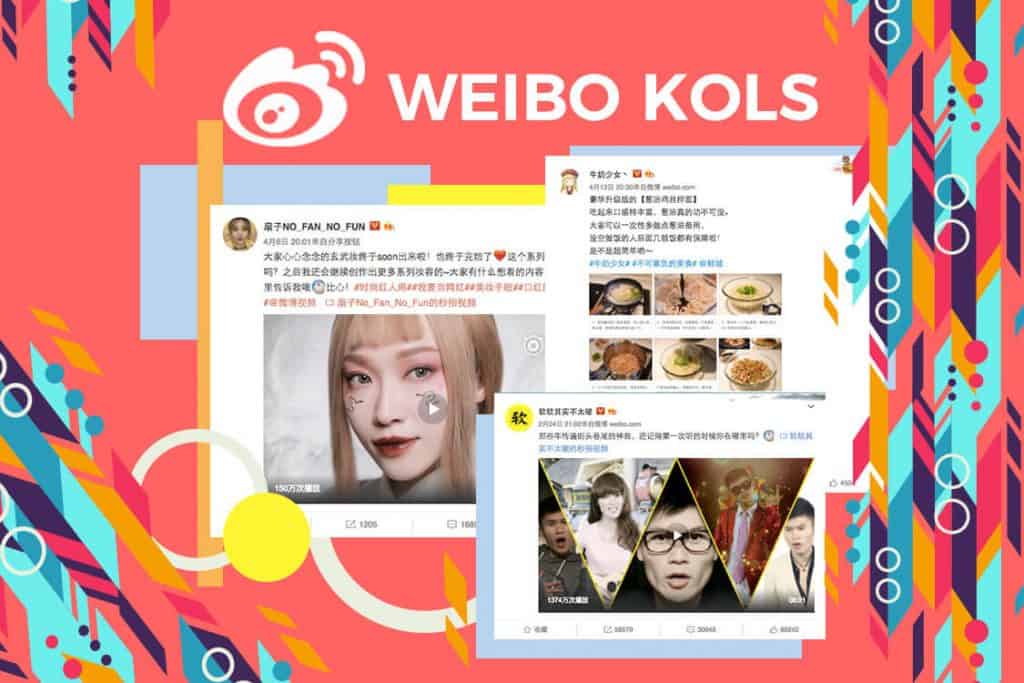
Micro-tasks use KOLs (key opinion leaders) — these influencers are essentially. After paying a deposit, you’ll be able to choose a KOL and set up a task in which your content will appear for a set amount of time.
After creating your Weibo profile, you can get more followers and attention by offering contests and prizes. You can use your larger audience to promote Chinese festivals and holidays as you grow.
Develop a Weibo marketing strategy that works
- 1. If you don’t have an advertising account, create one.
- 2. Add content to your profile and showcase it.
- 3. Research your audience and determine who you are
- 4. Engage with others by answering their questions and interacting.
- 5. Seek help from local experts
- 6. Use Weibo’s trending data
- 7. Referencing your posts
- 8. Attractive content is essential to generate interaction
- 9. You can choose the Weibo advertising strategy that suits you best: increase your followers or convert them into customers.
Remember that marketing on Weibo is just one link in your marketing network. You have many options to gain ground in China. A combination of several approaches is more effective than one, as it is in the West. Weibo is an excellent platform to increase brand awareness and connect with Chinese customers. You can use it as part of your digital marketing strategy in China. Contact our experts if you want to market and develop a business in China.
The main topics on Weibo in 2021
Here is an A to Z overview of the most talked about topics on Chinese social networks in 2021.
On Chinese social networks, 2021 has been an eventful year. We have compiled for you this list of Weibo trends from A to Z. It will help you to understand the hot topics of this year, and which topics were the most discussed by Chinese netizens.
A means discussions on Alaska
The U.S.-China strategic talks in Anchorage were a hot topic on Chinese social networks in March 2021. The first major face-to-face meeting between the U.S. and China of the Biden administration was a historic moment. Yang Jiechi made a comment about eating instant noodles for lunch. Chinese state media CGTN released a video of Yang Jiechi and Wang Yi, the Chinese state councilor, just before they entered a high-level discussion session.
B for Battle of Changjin Lake

The Chinese blockbuster Battle at Changjin Lake, which was released in theaters in the fall of 2021, has become one of China’s most popular films and has broken all sorts of box office records. This film gives a Chinese perspective of the beginning of the Korean War (1950-1953) as well as the unfolding of the Battle of Chosin Reservoir (a massive ground attack by the Chinese 9th Army Group against American forces).
C is for Call me By Fire
The all-male reality series Call Me By Fire (Pi Jing Zhan Ji De Ge Ge) was a huge hit this year. A Weibo hashtag dedicated specifically to the show received a staggering 12,000,000 views.
D for Dearest
A Chinese film called Dearest (Qin Ai De) was released in 2014. It received renewed attention in 2021 after a real-life event occurred in the story that inspired the film. Dearest centers on a Shenzhen couple who try to reunite with their son after becoming separated. The film is partly based on the true story of Sun Zhuo. Sun’s father told the media that his greatest wish for 2022 was that all the abducted children would be found.

E stands for EDG Championship
Chinese people all over China were delighted to see Edward Gaming win the League of Legends World Championship (Worlds 2021) title. Many netizens considered the Chinese esports team’s success one of their highlights of the year, with the hashtag #EDGWins Championship (#EDGDuoGuan #) attracting over 3.7 billion views on Weibo.
F stands for Flooding in 2021
In 2021, many parts of China experienced torrential rains and severe flooding. Horrific scenes were broadcast on Chinese social networks during the flooding.
G for Gansu Marathon
What was supposed to be an exciting ultra marathon race turned into a tragedy in Baiyin, Gansu, in May 2021. The Gansu Marathon has been a hot topic on Chinese social media, with 21 runners killed on a high-altitude mountainous course in harsh weather conditions. The disaster unfolded in real time on that horrific day, as runners who had been frozen on the mountain shared their photos on social networks
H for Hongxing Erke
It was impossible to predict that Chinese brand Hongxing Erke, also known as Hong Xing Er Ke, aka Erke, would be one of the country’s most beloved sportswear brands in 2021. In July 2021, national sportswear brand Erke donated 50 million yuan ($7.7 million) to help Henan flood victims. As Erke is a low-profile brand and doesn’t seem to make much profit, this action caught the attention of Chinese social networks. Online sales exploded and everyone wanted to support the “patriotic” brand. Its generosity, nation-loving image and the fact that it is “proudly made in China” contributed to its popularity and made it the coolest sportswear brand of the year.
I for Involution (Nei Juan )
Although “Involution” (neijuan Nei Juan ) was already a popular term in Chinese networks in 2020, a scene from A Love for a Dilemma (Xiao She De ) reignited online discussions on the topic in 2021. The viral scene featured two men discussing China’s competitive society and its education system.
J is for Justice for the People
Li Xuezheng, a famous Chinese producer, became a hot topic in Chinese social networks in 2021 when he publicly challenged the authority of the China Association of Performing Arts by publishing a blacklist of celebrities and online influencers. CAPA placed Zhang Zhehan (Zhang Zhehan) on its so-called “warning list.” His mission hashtag, “Justice for the People,” is #Ren Min De Gong Yi #”public justice for the people” and has received over 5 billion views. Many praise Li for being a brave man who is not afraid to challenge the authorities.
K is for Kris Wu
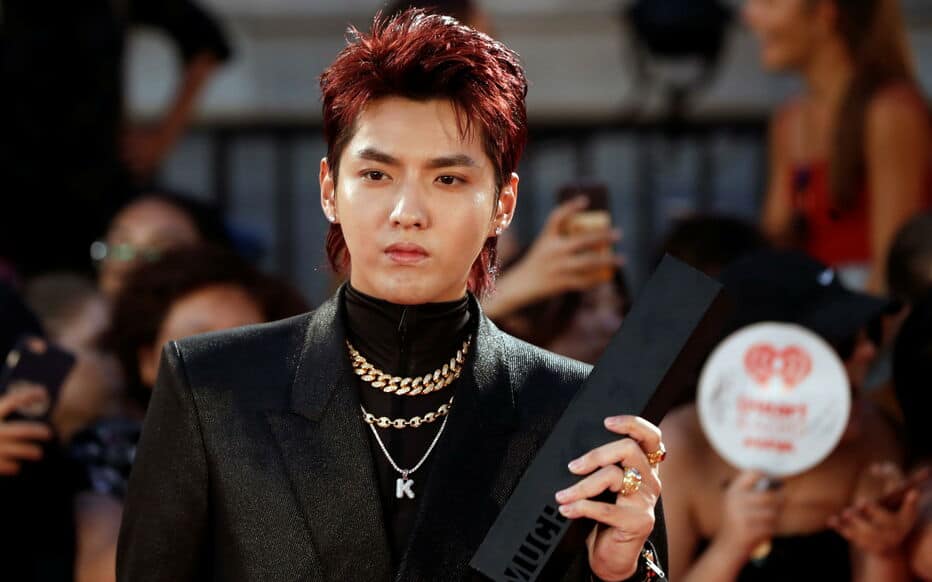
Chinese-Canadian celebrity Kris Wu, also known as Wu Yifan (Wu Yi Fan), was a dominant figure on Chinese social media in the summer of 2021. The news of Wu’s arrest on rape allegations triggered a flood of comments on Weibo. Meizhu Du, a 19-year-old student (Du Mei Zhu), was the first person to accuse Wu online of predatory behavior. At least 24 other women also claimed that Wu engaged in inappropriate behavior and lured young women into sexual relationships. Wu denied the allegations. However, more than 12 companies have cut ties with him or terminated their contracts. Many hashtags related to the scandal received billions and billions of views on Weibo. Wu was officially arrested in August 2021 on suspicion of rape.
L for Li Ziqi
Li Ziqi (or Li Zi Qi) is a Chinese internet star who has been active since 2015 as an online influencer, lifestyle vlogger and food blogger. She focuses on traditional Chinese food, tea, nature and crafts. Her channels include a Douyin channel with 55 million followers, a Youtube channel with 16.5 million subscribers, and an e-commerce store. Her videos are calm and soothing. Li was once named one of the top ten women in China. She has also been a cultural ambassador for Sichuan’s agricultural culture. Li stopped posting regular content online in 2021 after having a legal dispute with her co-investors over shares and dividend payments. His Weibo, Douyin and Youtube channels have not been updated for months. Why Li stopped posting has been the subject of much online speculation. Is she in trouble? Is she being silenced? Hopefully 2022 will bring more answers and new videos from Li about the idyllic farm life.
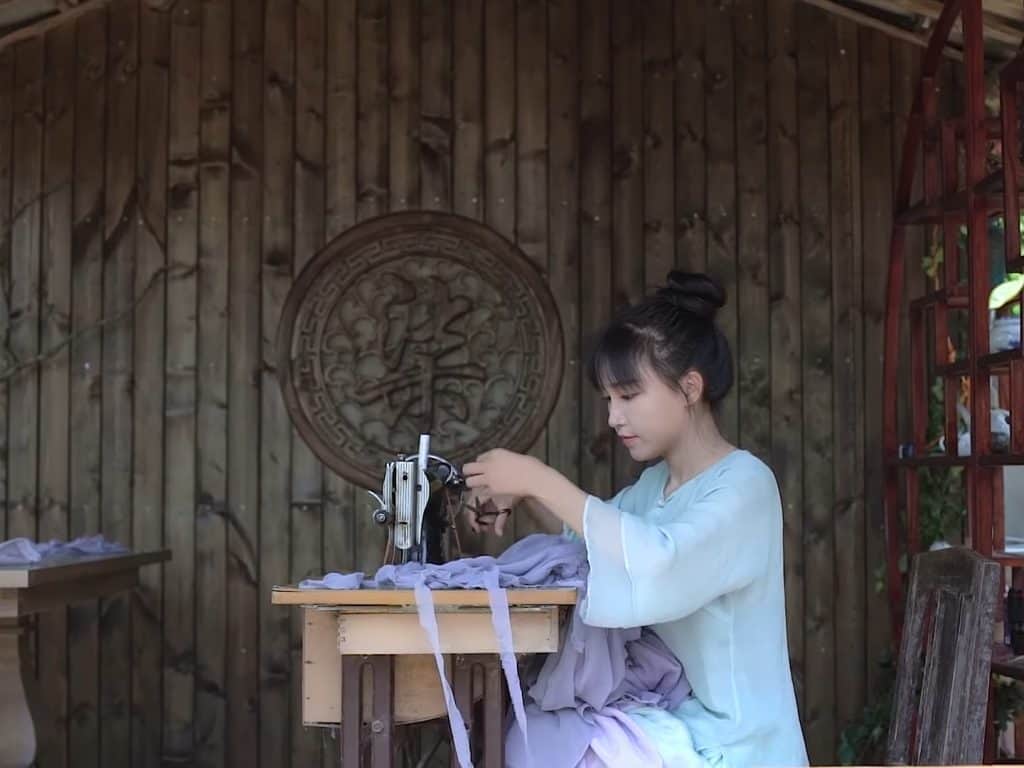
M is for Meng Wanzhou
Nearly three decades after Ren Zhengfei, Huawei’s CFO, was detained at the Vancouver airport at the request of U.S. authorities. Meng Wanzhou (Meng Zhou) returned to China in 2021. Meng Wangzhou was charged with fraud for violating U.S. sanctions against Iran. Chinese authorities have been calling for Meng’s freedom since late 2018. Meng’s return home has become a hot topic on Chinese social media. The Weibo hashtag #Meng Wanzhou about to return to the motherland (#Meng Wan Zhou Ji Jiang Hui Zu Guo #) has registered nearly three billion views.
N stands for nine-nine-six work culture (996)
Many Chinese workers are subject to “996” work schedules, which means they must work from 9 a.m. to 9 p.m. six days a week. China’s grueling 996 work culture has become a major topic of discussion in 2021. Chinese authorities reminded companies in August 2021 that 996 hours are illegal.
O is for Olympics
The Olympics were a hot topic on Chinese social media in 2021. Not only because China hosted the 2022 Winter Olympics, but also because of China’s success in the 2021 Tokyo Summer Olympics.

Peng Shuai (Pengshuai)
This is the most popular topic on Weibo. A Weibo post by the 35-year-old Chinese tennis player caused a shockwave on social networks. It was posted on November 2, 2021. The three-time Olympic champion details an alleged long-term affair she had with Zhang Gaoli (Zhang Gao Li), a 75-year-old married man. She served as China’s first vice premier from 2013 to 2018 and was also a member of China’s Politburo Standing Committee (2012-17). Peng’s post was only available for thirty minutes before it was taken offline. The WTA eventually announced the suspension of all Chinese tournaments. Peng told a reporter from Lianhe Zaobao that she was free and unmonitored in December 2021. Peng has been seen in public several times, but her name is still blocked on Chinese social networks.
QR
QR stands for QR-based Society. QR codes have become important in everyday life since the Covid19 epidemic. The QR code system for health, which is an important tool in China’s fight against Covid19, has made QR codes even more essential. This color based code has quickly been assigned to over 900 million people in over 300 cities.
Canada Goose’s return policy was named R
This is Canada Goose’s Canadian clothing brand. It has caused a lot of controversy this year on Chinese social networks because of its confusing and discriminatory return policy. After the company refused to refund a Shanghai customer for a damaged parka, it was reported that Canada Goose allows an unconditional 30-day refund outside China. China’s Consumer Rights Protection Law states that customers must be allowed to return any item within seven days of purchase, without giving reasons.
S stands for Shanghai Red Mansion
In late 2021, thousands of netizens were interested in the story of “Shanghai Red Mansion”. It was the story of many women forced to have sex in a six-story building in Shanghai’s Yangpu District. The Red Mansion is about Zhao Fuqiang (Zhao Fu Qiang), who was arrested in Shanghai in connection with a gang-related crime in September 2020. Zhao Fuqiang was sentenced to death in 2020 for using threats and violence to recruit young rural women to his cause. Zhao, an underworld kingpin, needed protection. Zhao invited high-ranking businessmen and government officials to the Little Red Mansion. The China Business Journal (Zhong Guo Jing Ying Bao ) published an article about the building and its development in December 2021. It included many photos that showed the unusual layout and extravagant rooms. The sentiment on social media was unanimous: if something like this can happen in Shanghai’s busy central business district, and many officials know about it, then what else do we know?
T is for Three-Child Policy 2021
This year, Chinese authorities announced that all Chinese couples would be allowed to have three children. The topic quickly became a trending topic online. A poll conducted on Weibo by Chinese state media Xinhua asked people if they were ready for the three-child policy. Nearly 30,000 people answered that they were not thinking about it
U for Uploader
The death of an “uploader” (also known as “UP”), a content creator on the Bilibili platform, caused a stir in 2021. Mo Cha, a blogger, was suffering from nasal tumors and other health problems. Doctors advised him to go to the hospital, but he could not afford the necessary treatment. He was also suffering from malnutrition and complained online that his stomach hurt. Social networks were filled with tributes and artwork for Mo Cha after it was reported that he had been killed. Another topic of interest was the suicide of a young Chinese woman who took her own life while watching a live stream.
V stands for Viya Viya,

one of the most famous and popular live streamers in China. The “queen of e-commerce” managed to sell products worth 20 billion yuan ($3.1 billion) in a single live streaming session. This was in support of Singles’ Day. The Hangzhou Tax Administration Office revealed that the online influencer was fined more than 1.3 billion yuan ($210 million) for late payment fees and taxes. Viya’s livestreaming channels were immediately suspended and her Weibo and Douyin social media accounts were also shut down shortly after the news was published.
W stands for Wandering Elephants
This year, a herd of wild Asian elephants traveled hundreds of miles in southern China. This trip has become a hot topic on Chinese social networks. The journey of 16 elephants, which started in the nature reserve of the mountainous southwestern province of Yunnan and ended on the outskirts of Kunming, was followed with great interest by Internet users. Thanks to drones that monitored and photographed the elephants, Internet users shared with pleasure the sometimes moving photos of these stray animals. After traveling 1,300 km, the elephants returned home in September 2021.
X is the abbreviation of Xinjiang Cotton Ban
In March 2021, the hashtag #IsupportXinjiang Cotton! received over 6 billion views on Weibo. This was after learning that many foreign brands, including H&M and Nike, would not source cotton from Xinjiang due to allegations of forced labor. The decision was made in response to the international NGO Better Cotton Initiative (BCI), which had already announced that it would cease all field operations in Xinjiang by the end of 2020. This news was followed by boycott movements on social media in China. Chinese brand ambassadors cut ties with foreign brands. Chinese e-commerce platforms Taobao.com, JD.com. Pinduoduo. Suning.com and Meituan’s Dianping reacted to the news by removing H&M products from their platforms. Thousands of Chinese netizens supported Xinjiang Cotton and the brands that were still sourcing cotton from the region. “Patriotic” brands on Taobao deliberately started advertising their products using “100% Xinjiang Cotton.”
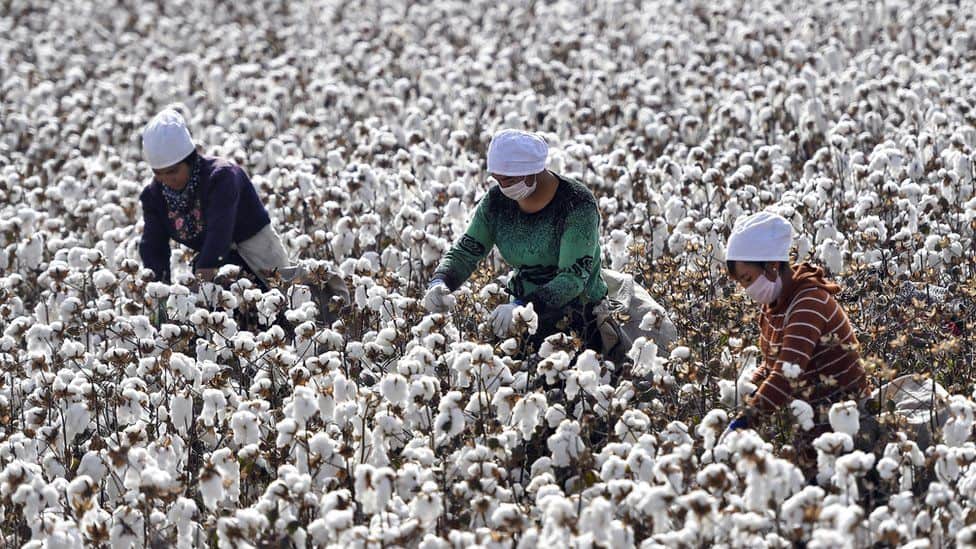
Y for Yuan Longping (Yuan Long Ping)
Also known as the “Father of Hybrid Rice,” was a Chinese plant scientist. He is best known for creating the first hybrid rice varieties in the 1970s. Yuan Longping was a person who had experienced the horrors and despair of famine. His invention of high-yielding hybrid rice varieties made him a national hero of China. Yuan (1930), who died on May 22, 2021, was mourned online by thousands. I Always Had Two Dreams” “Wo Yi Zhi You Liang Ge Meng Xiang” by digital artist Wuheqilin. Many images and artworks have been posted by Chinese netizens in honor of Yuan. Wuheqilin, an artist famous for his political satires mocking Western power, created a patriotic artwork in honor of Yuan.
Z for Zheng Shuang
Award-winning Chinese actress Zheng Shuang (Zheng Shuang) was caught in a scandal with Zhang Heng (Zhang Heng) in January 2021. Rumors spread on Weibo, Wechat, and other social media platforms that the celebrity couple had separated and that there was a dispute over two of their children born in the United States via surrogacy arrangements. Zheng Shuang’s “surrogacy portal” (Zheng Shuang Yun Men) was quickly created. Many brands ended their partnerships with Zheng after the scandal. Zheng’s professional life was also affected when Huading Award announced that it would revoke Zheng’s honorary titles. These include the Best Actress and Favorite TV Star awards. China’s National Administration of Radio, Film and Television also boycotted the celebrity and ordered her to pay a $46 million fine for tax fraud. She was then blacklisted by the China Performing Arts Association.
